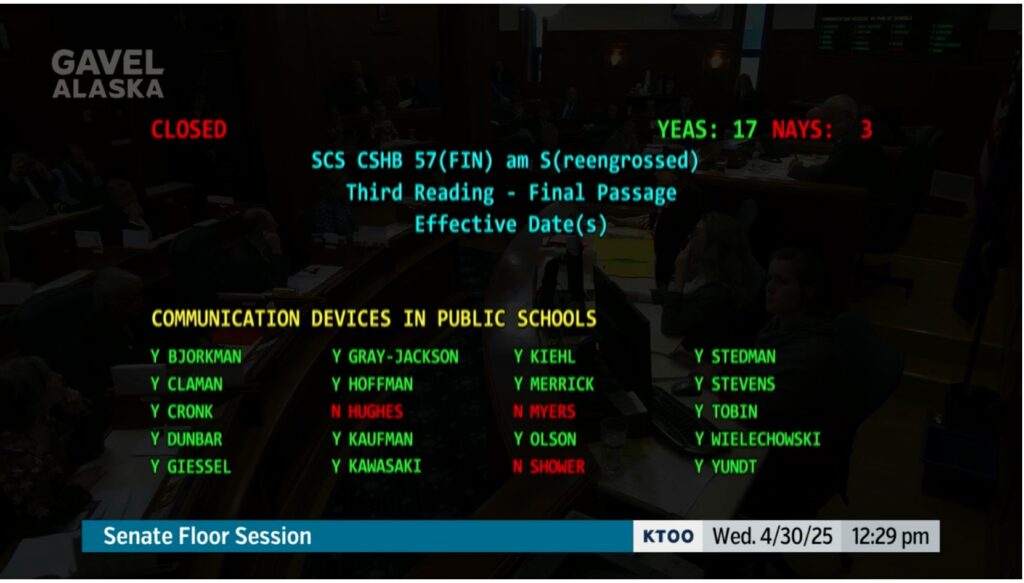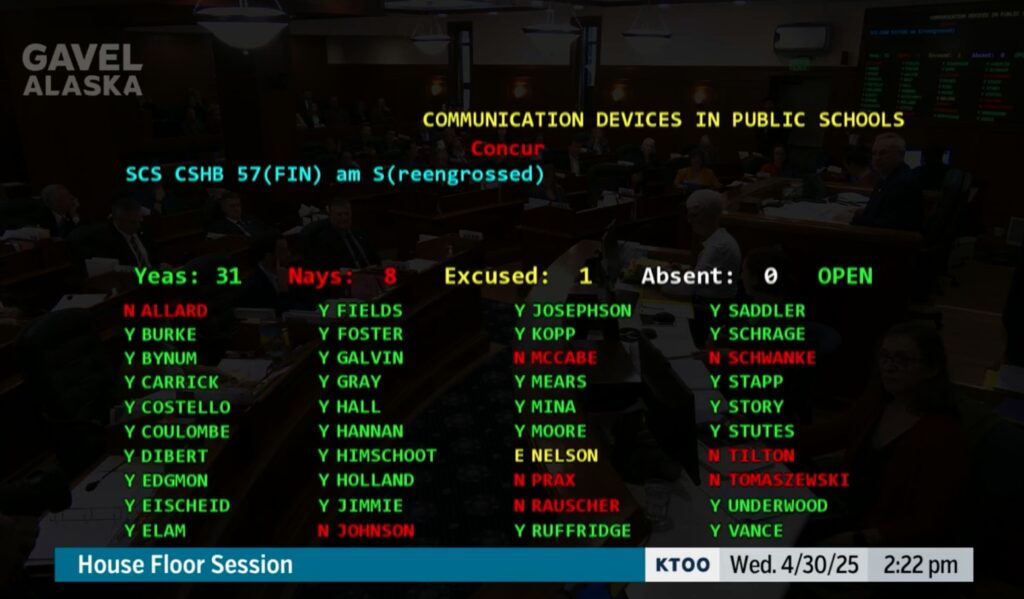House Bill 57 has passed — again. In the end, most Republicans in the House and Senate backed a spending bill sponsored by Rep. Zack Fields, one of the most hardline Democrats in the Legislature and the former communication director for the Alaska Democratic Party and former labor organizer for the AFL-CIO.
HB 57, which has seen twist and turns, took a few more turns on Wednesday, as the Senate fix one section of the bill that was unconstitutional.
HB 57, which began as a “cell phones in schools” bill but which is now an education funding bill, contained a provision from Sen. Rob Yundt of Wasilla that tied reading grants to the passage of another bill, a tax bill that he had voted for earlier in the session.
His amendment said the reading grant would be paid for from the tax, should it pass the House. That created a designated fund, which is unconstitutional. This called for a do-over in the Senate on Wednesday.
One of the major features of the bill is a $700 per student increase to the Base Student Allocation, which is the funding formula the state uses to appropriate funds to the school districts. Yundt’s amendment is in addition to that $184 million addition to the state budget.
Three Republican senators voted against the bill after it was sent back for constitutional fixes and then reappeared on the floor. They were Sen. Robb Myers, Sen. Mike Shower and Sen. Shelley Hughes.
The three had different reasons for objecting to the bill, but one of the main reasons was that Sen. Rob Yundt’s amendment, crafted in cooperation with Democrats, had some other technical issues with which they were not aligned.
Another part of the bill that could be considered unconstitutional is the amendment that has the state Department of Labor and Workforce Development tracking Alaska high school graduates for 20 years after they leave school, and compiling information on their lives.
Research to determine if any other state has such extensive tracking of high school graduates came up with none — Alaska will be alone in monitoring the activities of its graduates. It may violate the state Constitution’s privacy provision.

When the bill was returned to the House for concurrence on Wednesday, the body quickly agreed to the massive changes that had been made by the Senate, with only eight members voting against the bill.

The votes in the House and Senate means that most Republicans in the Legislature voted for a bill that was sponsored by a member who has worked hard to get them unelected, giving him a huge political win, when they could have demanded that the governor’s bill, which increased Base Student Allocation and had more policy aspects in it, be given a fair hearing.
The governor’s bill, HB 204, has yet to be heard in committees, as both the House and Senate are dominated by Democrats and is moot, ow that HB 57 has passed.
It’s unclear if the governor will veto the bill. If so, it would take 40 out of the 60 votes in the Legislature to override his veto. This will put the Republicans who voted for the legislation in a spot — do they stick with the hardline Democrats or do they support the highest-ranking elected Republican in the state?
